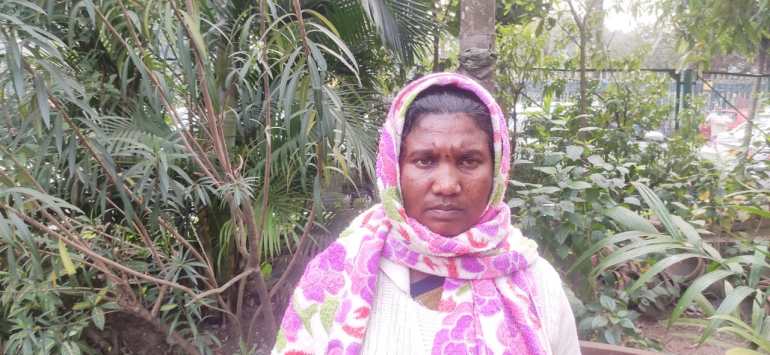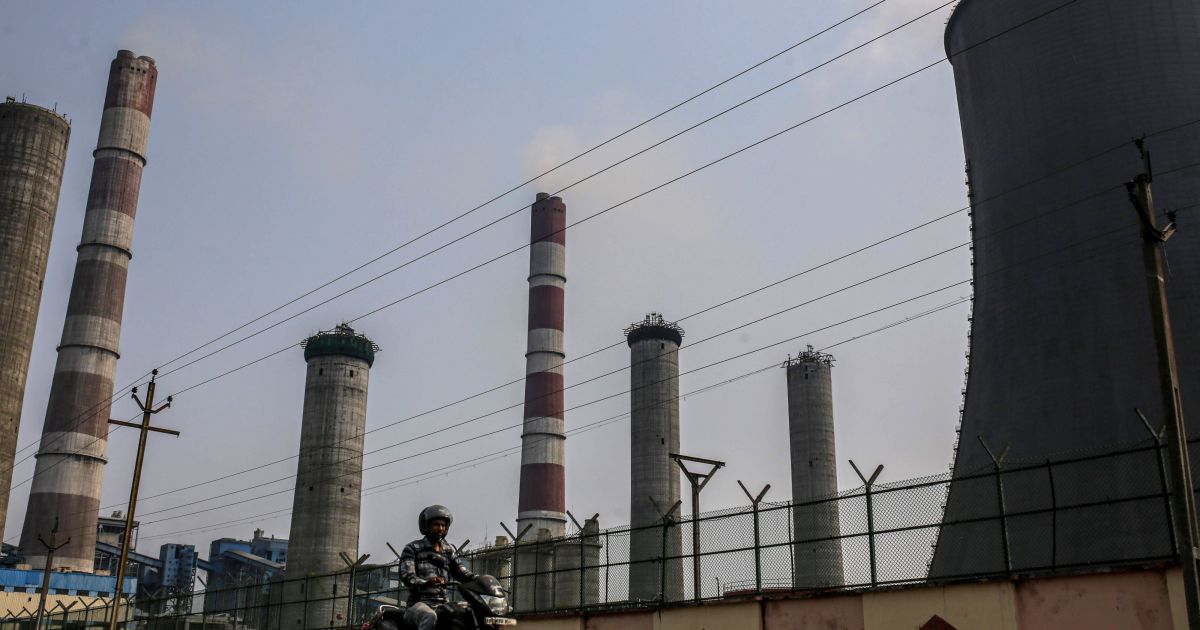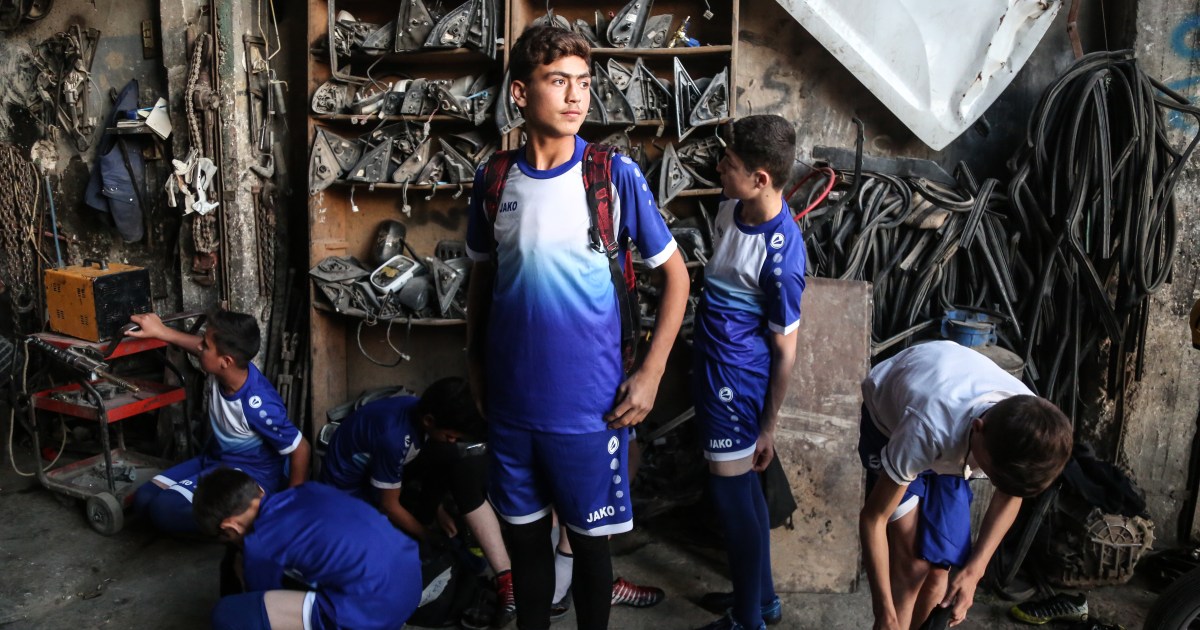Women in India’s West Bengal fight upcoming coal mine | Business and Economy News
Birbhum, India – Mainomoti Soren, a 42-year-old farmer in Dewanganj village in eastern India, was one of at least 100 women who clashed with supporters of a political rally in her village over the government’s attempts to buy her land to mine the coal buried there.
As the police beat the protesters with sticks last December, Soren, who was two months pregnant at the time, felt blood oozing down her legs and she fainted. Villagers rushed her on a motorcycle to a hospital but she had already lost the baby.
“I kept pleading about my pregnancy, but they didn’t listen and beat me with a stick,” says Soren.
Soren is among the hundreds of women belonging to an Indigenous community who have been leading since September a fierce battle against the West Bengal government’s efforts to set up a coal mine in Birbhum district which is touted to be the second-largest in the world on account of its estimated coal reserves of 2,102 million tonnes.
She is trying to hold on to the 4 acres (1.6 hectares) of land that she owns in Birbhum, about 200km (125 miles) from state capital Kolkata, where she grows paddy and vegetables. She keeps what she needs to feed her family of four, including her husband and their two children, and sells the rest, earning about 5,000 rupees ($66) on average a month. With the income barely enough, her husband works as a daily wage labourer on another farm.
“We find it difficult to eke out our livelihood,” says Soren, adding, “the loss of land will push us further into poverty.”
Villagers complain that no action has been taken against the errant policemen involved in the assault on the protesting women. “We were beaten up in the absence of female police,” Suhagini Soren, another villager who had joined the protests, told Al Jazeera. “They assaulted us severely but no action has been taken yet,” she said, showing four stitches on her hand as a result of the scuffle.
Senior police officers, however, denied any police brutality. “There was a minor scuffle between the two groups when the rally was being taken out in the village. Police intervened and pacified both the factions. But there were no reports of police brutality,” Nagendra Nath Tripathi, Birbhum superintendent of police, told Al Jazeera. The police were investigating the claims of brutality, he added.

The controversial coal block
The proposed coal project is spread across 18 villages and covers 4,314 households and about 21,000 people in the Deocha-Panchami-Dewanganj-Harisingha blocks of Birbhum and is commonly known as Deocha-Panchami coal mining project. Locals mostly farm their own land or someone else’s and also work as daily wage labourers in stone quarries and crushers in the area.
In September 2018, the federal government allocated the coal block to the West Bengal government. A year later, the state government handed over the block to West Bengal Power Development Corp Ltd (WBPDCL) for extracting coal and generating power. The government plans to invest 350 million rupees ($4.6m) for power generation.
The government has earmarked about 3,370 acres (1,364 hectares) of land for the coal mine of which 2,392 acres (968 hectares) is owned by the local families, which it aims to acquire.
But land acquisition in the country, specifically in West Bengal, is a tricky issue. The current All India Trinamool Congress government, led by Chief Minister Mamata Banerjee, came to power in 2011 on the back of a people’s movement to resist the then state government’s efforts to acquire their land to lease it to Tata Group to set up a car factory.
The move to excavate the coal comes at a time when India has committed to take the country’s non-fossil energy capacity to 500 gigawatts by 2030, up from 150GW now, and net zero emissions by 2070.
“The government has promised net zero emissions by 2070 but it’s silent on reducing the dependency on coal,” said Nivit Kumar Yadav, programme director, Centre for Science and Environment (CSE), a New Delhi-based think-tank.
Currently, India gets about 51.7 percent of its power from coal-based thermal power plants that use about 700 million tonnes of coal every year.
Apart from that, coal is also extensively used in various industries, like iron and steel, cement, bricks, fertiliser, and aluminium.
“There is no roadmap to decarbonise them. It is necessary to first make a proper plan on finding ways to reduce their emissions,” added Yadav.
Despite the enormity of the project, the WBDPCL is not yet clear how the coal to be excavated will be used and if it will be used to power the local power plants or if it will be exported. “The government is yet to prepare the mining plan based on the availability of natural resources. Nothing has been decided yet about its usage,” said Amalesh Kumar, adviser (mining) WBPDCL, declining to offer any more details on it.
The project could also lead to an increase in air pollution in the area, environmental activists warn, an already severe problem in the region. “The locals are already facing severe air pollution and health hazards due to the stone crushers and quarries that have plummeted the groundwater to around 500 feet, leading to water crisis during extreme summers. The mining would worsen the situation,” said Kunal Deb, an environmental activist based in Kolkata.
Government compensation
In November, Chief Minister Banerjee announced a package of 100 million rupees ($1.3m) for the people who would be displaced by mining. Under that scheme, the government is offering 2 million rupees ($26,234) per acre, as well as the job of a junior constable in the police for each family that sold its land. In addition, it would also relocate the family to a new house and pay compensation for the house they had to vacate.
Earlier, in February, it sweetened the job offer and gave the choice of the posts of a constable and a government clerk.

But villagers say such offers do not attract them. “The government is offering a job to a single member of a household but what about others? And the constable job would not fetch a monthly salary of beyond 15,000 rupees to 20,000 rupees ($200-$265), which is too meagre an amount. Nothing can compensate the loss of the land that offers livelihood across the year,” said Meeru Tudu, 60, a homemaker in Harisingha village. Her family of 12 depends on their 5 acres (2 hectares) of land on which they grow paddy and vegetables all through the year, she said.
“We would not part with the land even at the cost of forgoing our lives,” she said.
While about 500 people have sold their land to the government so far, villagers say those are mostly people who had stopped farming. Some of those land sellers complain that the government misled them with assurances of more jobs for family members.
For instance, Lakhiram Murmu, 55, one of the people who agreed to sell their land, told Al Jazeera that government officials assured him that they would find jobs for all three of his sons and not just one as was laid out in the offer. But they have not lived up to that promise and have so far offered only one job. “We have been duped,” said Murmu who has signed away his land but has since declined to accept the money for it.
The government officials, however, rubbished the allegations. The villagers “were explained everything in advance before signing the document”, said Ashim Pal, additional district magistrate of Birbhum.





Pingback: https://www.advantageja.eu/supplements/phenq-reviews-know-ingredients-pros/